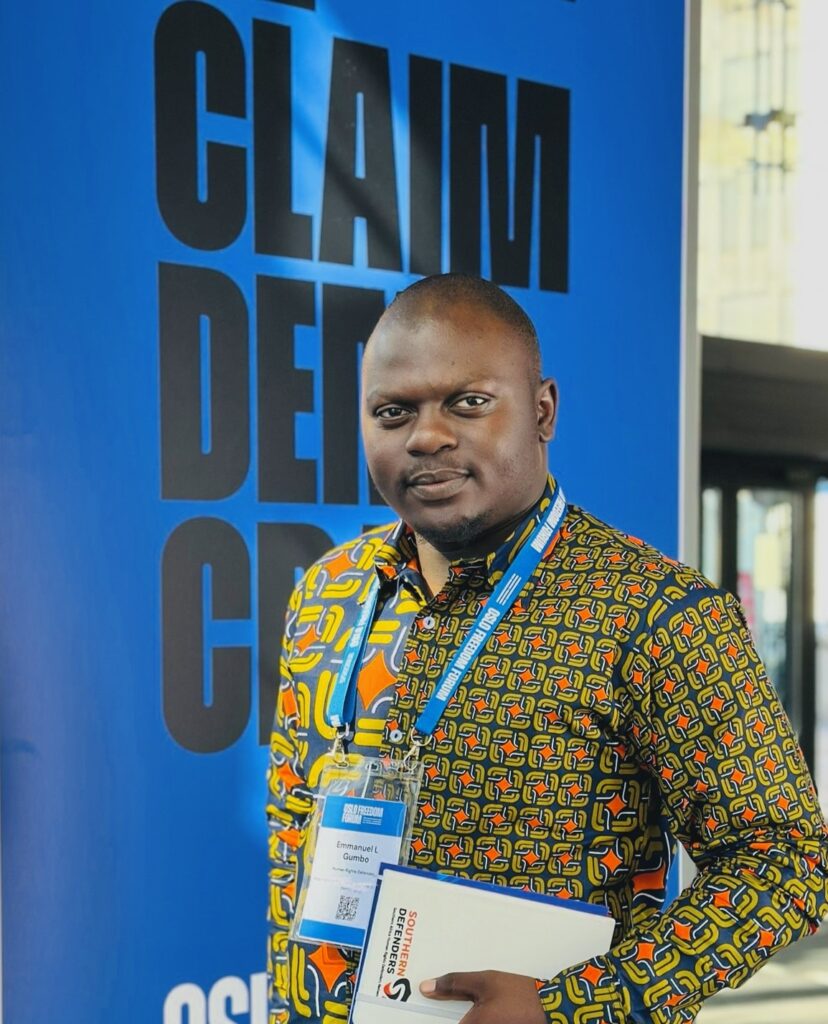
A guest blog by Emmanuel Gumbo, Zimbabwean lawyer and human rights defender
Human rights defenders play a vital role in addressing the global climate crisis. These defenders – individuals and communities advocating for effective climate action – are at the forefront of efforts to mitigate the catastrophic impacts of climate change. However, they remain underappreciated and face significant challenges.
Climate defenders are individuals or groups actively engaged in advocating for climate justice. Their work focuses on securing a just transition to sustainable energy systems, reducing carbon emissions, and holding governments and corporations accountable for climate-related harm. In regions most vulnerable to climate change, such as the Global South, these defenders are often the only voices standing up for communities in the face of the severe consequences of rising temperatures, increased extreme weather events, and disrupted livelihoods. Despite their critical role, they are frequently criminalized, harassed, or silenced. This violates their right to defend rights as guaranteed in the United Nations Declaration on Human Rights Defenders of 1998.
Climate defenders have successfully halted or mitigated climate-destructive projects, advocating for the adoption of clean energy alternatives, climate-friendly policies, and local adaptation measures. However, the challenges they face are immense. From the criminalization of peaceful protests to exclusion from major climate forums like the United Nations Climate Change Conferences (the COP), their participation is systematically restricted. This exclusion violates international human rights principles, including the right to participate in public affairs, and hampers our global response to the climate crisis.
Climate defenders face targeted violence and intimidation in many parts of the world. This repression hampers their ability to advocate for necessary changes to curb climate change impacts. These attacks often violate the rights to freedom of expression and peaceful assembly, protected internationally under the Universal Declaration of Human Rights and the International Covenant on Civil and Political Rights.
Governments must urgently move to decriminalize climate activism and ensure robust legal protections for climate defenders. International frameworks should also adapt to include stronger protections against the persecution of those advocating for climate justice. Climate defenders must also be given a seat at the table in global climate governance forums.
In the recent report A/79/123 to the UN General Assembly, Mary Lawlor, the UN Special Rapporteur on the situation of human rights defenders highlights the integral role climate defenders play in achieving the UN Sustainable Development Goals, particularly SDG 13. The report stresses the legal obligation to protect climate defenders, citing their contributions to SDGs, on reducing inequalities (SDG 10) and promoting sustainable development (SDG 8). Ensuring their protection aligns with international human rights obligations, including the rights to freedom of expression and participation in public affairs under the ICCPR Articles 19 and 25. It is urgent to recognise the fundamental link between climate action and human rights. Protecting climate defenders is not only a matter of justice but also a key strategy in mitigating the worst effects of climate change. The global community must act decisively to protect those who fight to protect our planet.



